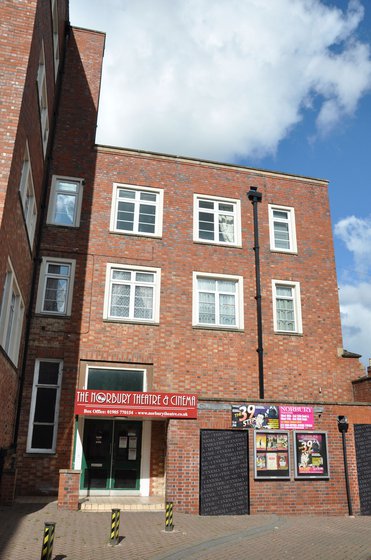Friar Street
 Friar Street was a centre for Iron Age salt production in the 3rd and 2nd centuries BC. By medieval times the area had become the 'upmarket' part of the town where the wealthy salt merchants lived. One of these houses, Chorley House, now the site of a car park opposite Norbury House, was demolished in 1962 and the public outcry this caused led to Priory House being restored and remaining properties being renovated.
Friar Street was a centre for Iron Age salt production in the 3rd and 2nd centuries BC. By medieval times the area had become the 'upmarket' part of the town where the wealthy salt merchants lived. One of these houses, Chorley House, now the site of a car park opposite Norbury House, was demolished in 1962 and the public outcry this caused led to Priory House being restored and remaining properties being renovated.
Most of the timber frame of Priory House was built in the middle of the 17th century, except for a solar wing which dates back to about 1500 AD. There is a Queen Anne chimney with ornamental brickwork. The house was restored in the 1970s and is now cared for by the Droitwich Preservation Trust, which leases the house for office use.
The town's first cinema was on the north side of the street and was also demolished in 1962. The original church of St Nicholas was on the corner of Friar Street and Winnetts Lane. After being damaged in the great fire of 1291 and then during the Civil War, the ruins were finally cleared in the 19th century.
The site of the Old Cock Inn has a long and interesting history. The existing building dates from the early 19th century. An earlier building was first licensed for the sale of alcohol during the reign of Queen Anne in 1712. Cider, ale and perry, made from crushed and fermented pears, would have been drunk at the time. A powerful brew called Lambswool was also popular. This was made from roasted apple pulp, preferably crab apple, mixed with ale. The froth, which rose to the surface and clung to the lips of the drinker, gave the drink its name.
The ecclesiastical window on the first floor came from the medieval Church of St
Nicholas, also situated in Friar Street, after it was destroyed in the 18th century. The carved head with a frog emerging from its mouth is thought to represent the infamous Judge Jeffreys.He is reputed to have held one of his assizes here, after the rebellion of 1685 when the Duke of Monmouth, illegitimate sone of Charles II, attempted to seize the throne. Those found guilty of supporting the rebellion were either sentenced to death or transported to the West Indies.
 Records of 1906 show that the borough of Droitwich had a greater number of public houses per head of population than anywhere else in the country, one for every hundred inhabitants. However, convictions for drunkenness were only one per three hundred people, lower than elsewhere in the country.
Records of 1906 show that the borough of Droitwich had a greater number of public houses per head of population than anywhere else in the country, one for every hundred inhabitants. However, convictions for drunkenness were only one per three hundred people, lower than elsewhere in the country.



